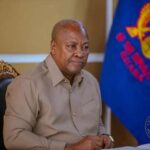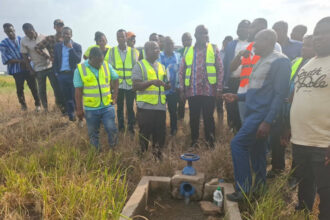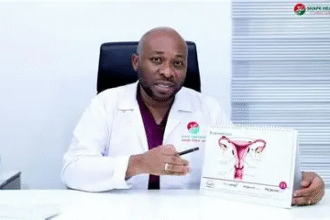Trust is a delicate commodity in politics, often difficult to earn but easy to squander. In the realm of Ghanaian politics, this question takes centre stage as Dr. Mahamudu Bawumia, the Vice President and now flagbearer of the ruling New Patriotic Party, sets out to rebuild the trust and confidence of the Ghanaian electorate in him.
Before the 2016 election, Dr. Bawumia was hailed as the ‘economic genius’ who possessed the magic wand to rejuvenate Ghana’s faltering economy after the era of the “incompetent John Mahama.” Six years as Vice President and Chairman of the Economic Management Team have, however, seen the economy mired in a state of disarray.
As Ghana prepares for the 2024 general elections, a pivotal question looms: How can Dr. Bawumia convince voters that he is not to blame for the nation’s historic economic downturn? The nation’s economic performance has been a subject of intense debate, and Bawumia faces the arduous task of addressing these concerns. After all, he has played a central role in the government for the past six years, during which the economic situation has deteriorated.
Since the NPP Presidential primary on Saturday, I’ve thought about how Dr. Bawumia can persuade individuals like myself to vote for him despite his association with Ghana’s most challenging economic period in recent memory.
Ghana’s economic challenges in recent years have been well-documented. Current inflation stands at 38.1%, a drop from the 54% it reached in December 2022. Pensioners endured months of protests to have their funds excluded from the Domestic Debt Exchange Programme, and the country has faced debt servicing defaults and junk credit ratings.
Covid-19 and the Russian-Ukraine war have often been cited as the cause of the poor showing of the economy. Indeed, government communicators and Bawumia himself have tried very hard to blame the crisis on these two global occurrences. They have been quick to point to the economy pre-covid, eloquently blurting out favourable economic indicators for the period. But we have been told by economic analysts and those familiar with the Ghanaian situation that the nation’s economy faced crippling challenges and those underlying factors were only exposed by the global crises.
Vice President Mahamudu Bawumia’s credibility has taken a serious hit over the years, as many of the promises he made before 2016 have not been fulfilled after almost seven years in power.
Bawumia promised that every Ghanaian would have a bank account by the end of 2018. However, this promise has not been fulfilled. He later clarified that he meant mobile money accounts.
The much-touted allocation of US$1 million annually per constituency has also become a bitter fallacy. Bawumia also promised to construct 570 dams in 2017. However, only a handful of these dams, better known as dug-outs were constructed.
In addition, Bawumia promised to pursue aggressive industrialization and value addition to agricultural produce. However, this is yet to be seen.
His promise that the government was going to build concrete roads to replace the asphalt we have known over the years has also not materialized.
Finally, Bawumia promised that no village in Ghana would have a challenge with toilet and water provision within two years of an NPP government. However, this promise has also not been fulfilled.
Bawumia’s unfulfilled promises have led to a loss of credibility for him among many Ghanaians. And this may likely hurt his chances of becoming president in the 2024 election.
Nevertheless, Dr. Bawumia has the opportunity to regain the trust of Ghanaians. Here are some strategies he can employ to win back the confidence of Ghanaian voters:
Economic Record Review: Bawumia should begin by critically examining his economic track record during his tenure as Vice President. Highlighting specific accomplishments and policies that had a positive impact on the economy can go a long way in reestablishing trust.
Also, Bawumia should explain to Ghanaians his role in the government’s economic policies and decisions that led the country to the International Monetary Fund. We have often heard rumours that the Vice President wasn’t in agreement with the decision to seek a bailout from the IMF and some other decisions such as taxing mobile money transactions (e-levy). Dr Bawumia should make it clear that he was not always in agreement with the President or other members of the Cabinet, and that he often tried to push for different policies.
Accountability and Transparency: Transparency is the cornerstone of regaining trust. Bawumia can pledge to lead a transparent administration with a strong emphasis on accountability. This entails addressing perceived shortcomings and demonstrating a commitment to rectifying them
Policy Alternatives: Bawumia should present well-thought-out economic policies and plans. Articulating a comprehensive vision for the nation’s economic growth, job creation, and poverty reduction is essential to convince voters that he has learned from past experiences and is prepared to lead the country in the right direction.
Engagement with Experts: Collaborating with economic experts, both domestically and internationally, can provide valuable insights and recommendations. Bawumia can demonstrate his willingness to learn and adapt by seeking advice from seasoned professionals in the field.
Grassroots Outreach: Winning an election isn’t solely about economic policies but also about connecting with ordinary Ghanaians. A closer look at Saturday’s results reveals that Kennedy controls 37 percent of the NPP voters, the majority of those voters are the grassroots. Bawumia should engage with people at the grassroots level, understand their concerns, and empathize with their daily challenges. Demonstrating a genuine interest in improving the lives of the citizens could build trust and support.
As the 2024 elections approach, Dr. Mahamudu Bawumia faces the uphill task of convincing Ghanaians that he is not responsible for the nation’s historic economic challenges. Through self-assessment, accountability, transparency, policy alternatives, expert engagement, grassroots outreach, and a call for unity, Bawumia has an opportunity to make a compelling case for his candidacy and seek to regain the trust of the Ghanaian electorate.
Trust in politics may be challenging to rebuild, but with the right approach and commitment, it is not impossible.














